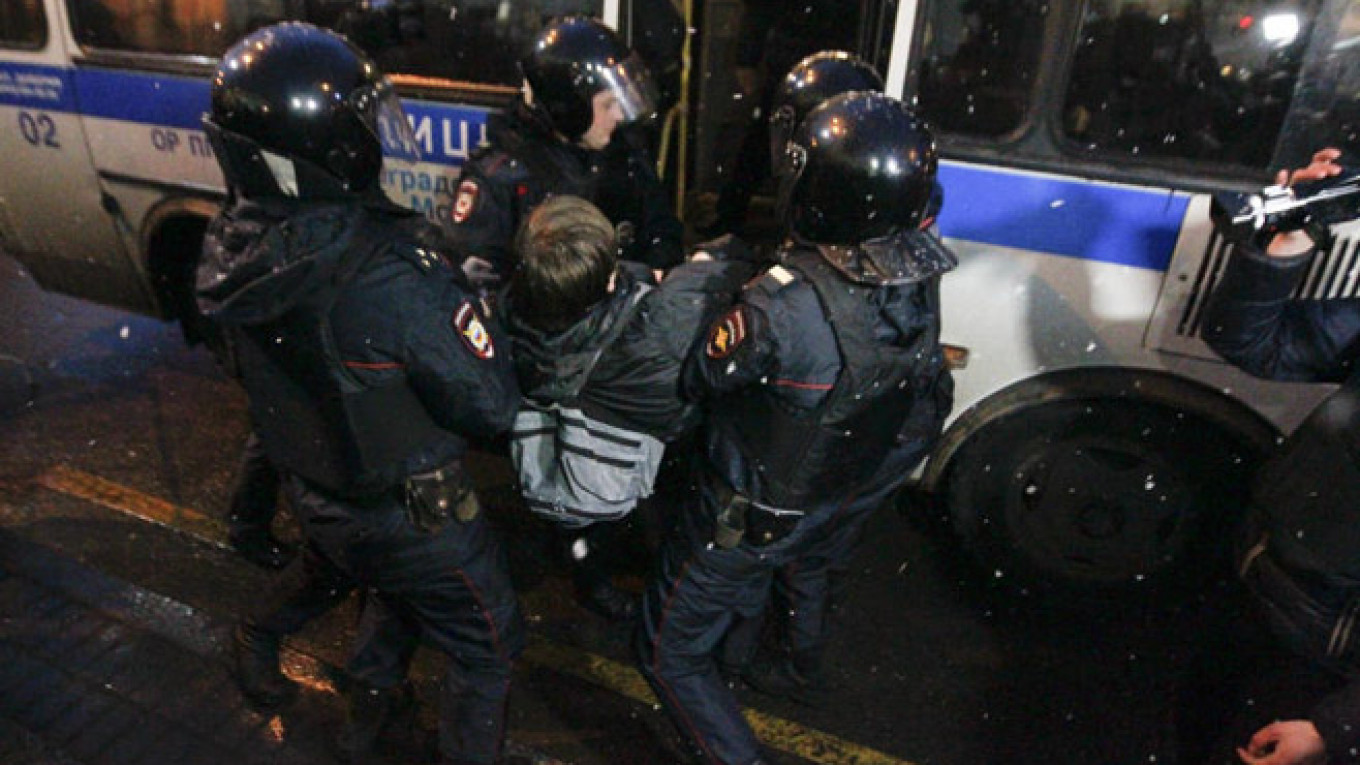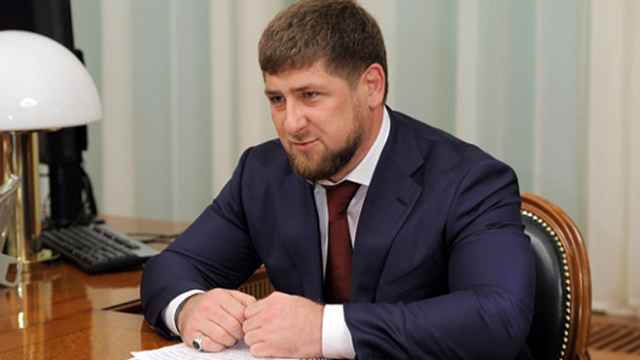The majority of Russians believe governmental order is more important than ensuring the protection of human rights, according to a poll published Monday.
The survey, conducted by the independent Levada Center on Nov. 21-24, saw 62 percent of respondents say that order in the government takes priority over the protection of human rights in Russia right now, amid the ongoing economic crisis and deteriorating relations with the West over the Ukraine crisis.
Twenty-nine percent saw human rights as more important than order, and another 9 percent expressed difficulty in answering the question.
The results of the poll came as many began to fear an uphill battle for the country's economy, with Russian currency having significantly deteriorated in recent weeks after the West hurled wave after wave of sanctions against Russia over the ongoing conflict in Ukraine.
Human rights also played a central role in the poll, though freedom of speech and freedom of religion ranked fairly low on the list.
Sixty-five percent of respondents cited the right to life as the most important right, followed by the right to free education, medical aid and pensions with 64 percent, and the right to privacy and a home with 50 percent.
The right to a well-paying job in one's specialty came next, with 43 percent — followed by the right to own property, with 39 percent.
The right to free speech was cited as the most important by only 30 percent of respondents, and freedom of religion by only 22 percent. Twenty percent cited the right to information as the most important, and 19 percent cited the right to elect representatives in government.
In response to a question on what would be more instrumental in ensuring the well-being of Russian citizens, 49 percent said reliable, effective laws were key, compared with 42 percent who said it depended more on decent people in the government.
The poll, with a margin of error that reportedly did not exceed 3.4 percent, was conducted among 1,600 adults in 46 regions and 134 cities.
A Message from The Moscow Times:
Dear readers,
We are facing unprecedented challenges. Russia's Prosecutor General's Office has designated The Moscow Times as an "undesirable" organization, criminalizing our work and putting our staff at risk of prosecution. This follows our earlier unjust labeling as a "foreign agent."
These actions are direct attempts to silence independent journalism in Russia. The authorities claim our work "discredits the decisions of the Russian leadership." We see things differently: we strive to provide accurate, unbiased reporting on Russia.
We, the journalists of The Moscow Times, refuse to be silenced. But to continue our work, we need your help.
Your support, no matter how small, makes a world of difference. If you can, please support us monthly starting from just $2. It's quick to set up, and every contribution makes a significant impact.
By supporting The Moscow Times, you're defending open, independent journalism in the face of repression. Thank you for standing with us.
Remind me later.






